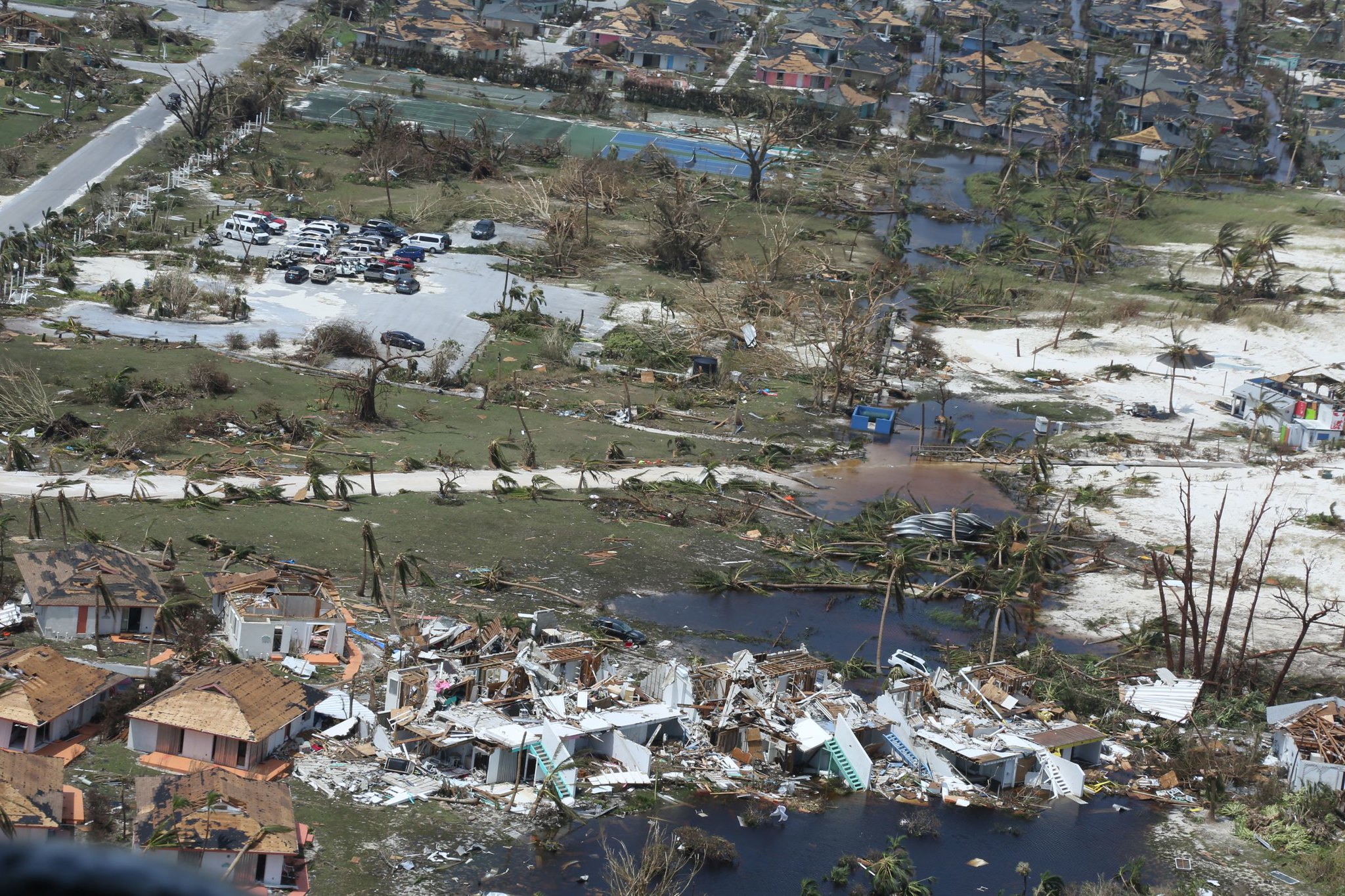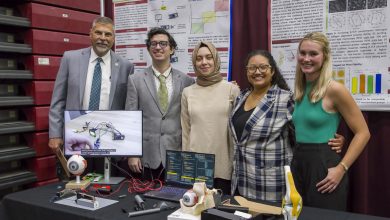After a Hurricane, an Alumna Gets Help from Her Alma Mater
After a hurricane ravages a region, news coverage and attention are focused on the area for a few weeks. But when the cameras and reporters leave and the attention fades, the people of the region are left to deal with the damage caused by the natural disaster.
This is the case for the citizens of Grand Bahama Island, who are still feeling the effects of Hurricane Dorian, which blasted the island in September 2019, killing 70 people and causing $3.4 billion in damage.
Among the most concerning issues left behind in the storm’s wake: damage to the island’s region’s freshwater lenses (FWL), the thin, natural barriers between the saltwater surrounding the island and the freshwater underneath it that allow for clean water for drinking, bathing and cooking.
This situation was among the concerns that had Florida Tech alumna and Grand Bahama Island resident Nivea Mazzoni reaching out to her former alma mater.
After hearing of the situation, Florida Tech mechanical and civil engineering assistant professor Efthymios Nikolopoulos, along with California State University, Sacramento assistant professor Zoi Dokou, applied for and, in January, were awarded a $49,104 National Science Foundation grant to fund research into the FWL situation on the island.
With a 20-foot storm surge, that barrier was breached, allowing for saltwater to infiltrate the groundwater, flooding the island’s aquifer and making the water unusable. The team will examine how the rate of recovery of FWLs impacted by this storm-induced saltwater intrusion is connected to climatological characteristics such as storm intensity, duration and frequency of precipitation. Nikolopoulos and the other researchers will also examine how FWLs will be affected by future elevated sea levels and extended periods of drought induced by climate change and the human response to these events, such as excessive pumping activity that can induce “upconing,” a process when freshwater is discharged and saltwater moves upwards towards the well.
The project was initiated by Mazzoni, vice president at Davies Associates, a construction and project management company. Mazzoni, who graduated in 1997 with a degree in civil engineering, reached out to her former professor at Florida Tech, Paul Cosentino, for help regarding the island. Cosentino then put Mazzoni in touch with fellow mechanical and civil engineering professor Jean-Paul Pinelli, who then connected Mazzoni with other faculty members, including Nikolopoulos, who then initiated the plan for doing research on the flooding.
“I didn’t even have a second thought when I sent the message to Dr. Cosentino, that’s just how close and in contact we’ve remained since I’ve graduated,” Mazzoni said. “Florida Tech has always been family for us; my brother also graduated from there, so we’ve loved it. It’s great to know in a situation, especially with what happened with this, I was able to reach out and get in contact with tens of other different professors and get in touch with Dr. Nikolopoulos, who was able to get this grant in place.”
The team of Nikolopoulos, Dokou, Florida Tech PhD. student Zimeena Rasheed and Florida Tech undergraduate student Rachael McMahon will arrive at Grand Bahama Island Sunday. Though this trip will only be for one week, Nikolopoulos said the research will carry on over an 8 to 9-month period and will include taking groundwater and soil samples and monitoring some flooded areas. The team will look to return in the summer to analyze the sampled areas for any changes.
The goal of the first round of research is to develop a system for local officials as they assess what steps should be taken in dealing with the problems caused by saltwater intrusion. In addition to their own samples, Nikolopoulos is in talks with companies who had previously surveyed the island to use their data. The team is looking at other factors, such as the unusual dry season that came after Dorian, the frequency of these seasons and how groundwater will be affected.
The research Nikolopoulos is doing is a mix of passion, academic curiosity and a desire to help others. He is not being paid for this research, with all funds going towards the project.
“It’s part of why I’m doing what I do,” he said. “There’s an opportunity for me to do research that has a social impact so hopefully down the road we will help those communities improve resilience to weather and climate extremes.”
There is plenty of work to be done on Grand Bahama Island. The airport is not functioning at full capacity. People are still missing. Sections of neighborhoods are completely gone. However, the resiliency of the island’s citizens – and the help of organizations like Florida Tech – has both researchers and locals hopeful for a safer future.
###





